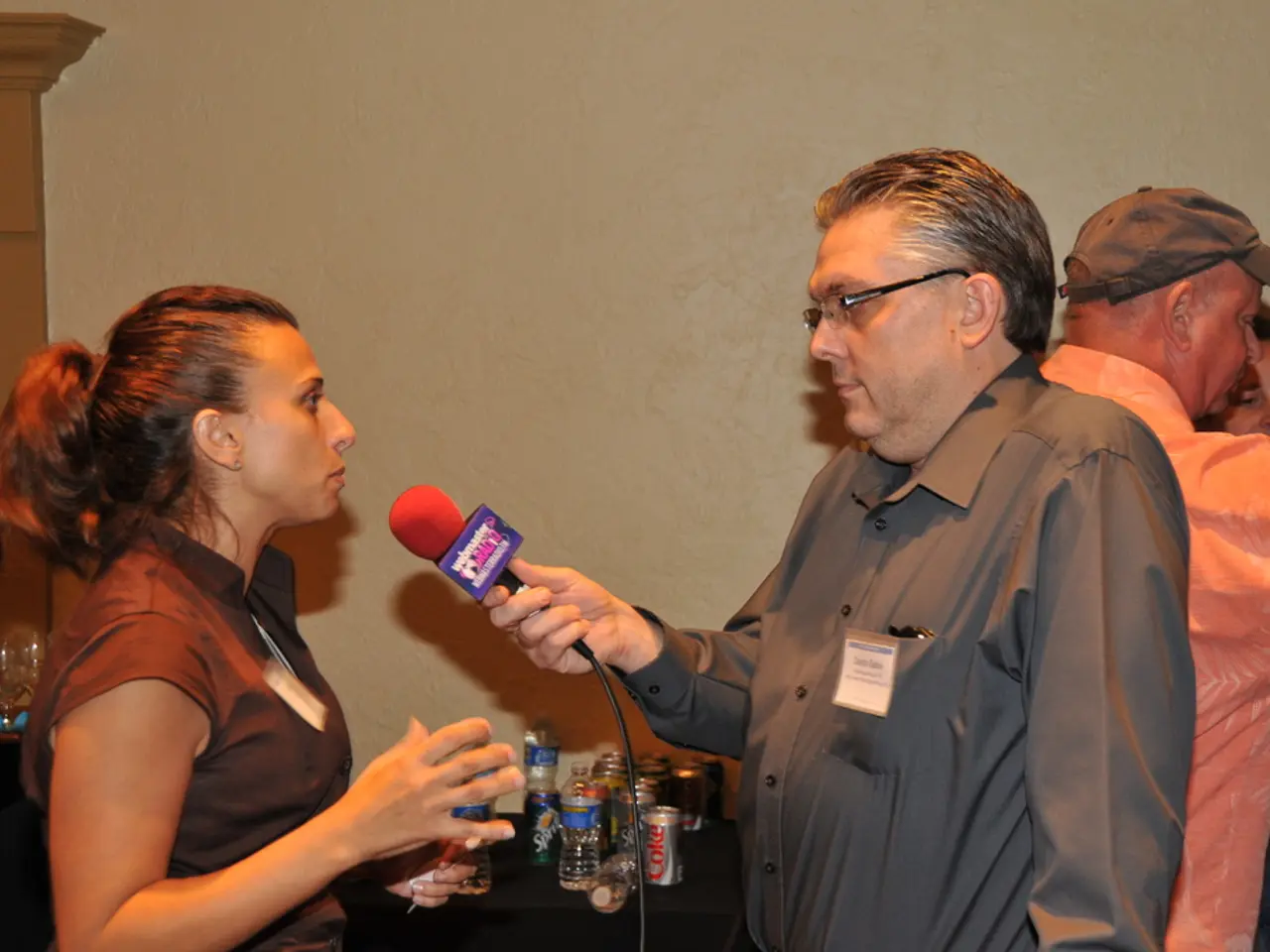Breakdown of Interview Analysis Techniques
Building rapport is a crucial aspect of qualitative research interviews, as it helps establish a connection between the researcher and the participant, leading to more authentic and meaningful data. Here's a look at best practices, ethical considerations, and potential challenges in this process.
Best Practices
To effectively build rapport, researchers should employ active listening, frame open-ended questions that encourage participants to express their feelings and opinions fully, and use non-threatening, culturally sensitive nonverbal communication such as mirroring participants' gestures to create comfort and trust [1][3][4]. The goal is to make participants feel relaxed and respected, helping them open up and share authentic insights without feeling self-conscious [1].
Ethical Considerations
Maintaining clear boundaries is essential to avoid coercion or unintended influence, especially in sensitive contexts where participants may experience distress or vulnerability. Researchers must balance empathy and attentiveness with ethical rigor, ensuring voluntary informed consent and avoiding overstepping into roles such as caregiver or financial supporter, which can complicate the participant-researcher relationship and affect data validity [2]. Compensation should be fair but not coercive, and confidentiality must be upheld.
Potential Challenges
Building rapport can be challenging, particularly with data-obscured or vulnerable populations. Researchers may confront dilemmas when participants’ needs exceed the research role, requiring careful reflection and sometimes consultation with ethics committees or support services [2][4]. Navigating cultural or power differences that can hinder trust is another challenge.
Key actionable steps include preparing open-ended, flexible questions, using empathetic listening and responding respectfully to participant cues, using culturally sensitive, nonverbal behaviors, clearly explaining consent, boundaries, and confidentiality to participants, and being reflexive about ethical dilemmas and seeking guidance when needed [2].
The Importance of Rapport
Rapport is crucial for collecting detailed and authentic data in interviews. Verbal techniques such as active listening, positive reinforcement, and relevant follow-up questions are key to building a good relationship. In interviews with vulnerable populations, researchers must be aware of the continuum of rapport and avoid both too little and too much rapport to prevent negative outcomes such as re-traumatization and feelings of exploitation.
A Brief History of Rapport
The term "rapport" originates from the French term "rapporteur," which means "to bring back" or "to tell." In the context of interviews, it refers to the connection built between the researcher and the participant, enabling them to communicate effectively and honestly.
Building Rapport in Job Interviews
In job interviews, building rapport involves establishing a relationship based on mutual respect, mindfulness, and trust. This can be achieved by showing genuine interest in the candidate's responses, demonstrated through thoughtful follow-up questions, probing specific points, or enthusiasm for the topics discussed.
Academic training and researcher preparation should emphasize the ethical dimensions of relationships and empower researchers to build trust without crossing personal boundaries. The study by Schmid, Garrels, and Skåland (2024) calls for a more nuanced and reflective approach to building relationships and urges qualitative researchers to pay attention to the balance between building trust and respecting boundaries [5].
[1] Hennink, M. P., & Gibbs, N. (2018). Qualitative data analysis: A practical guide for students and researchers. Sage Publications.
[2] Kvale, S., & Brinkmann, S. (2009). Interviews: Learning the craft of qualitative research interviewing. Sage Publications.
[3] Patton, M. Q. (2015). Qualitative research & evaluation methods (4th ed.). Sage Publications.
[4] Silverman, D. (2013). Interviewing as qualitative research: A guide for researchers in education and the social sciences (3rd ed.). Left Coast Press.
[5] Schmid, K., Garrels, J., & Skåland, K. (2024). Navigating the ethics of rapport in qualitative research: A review and recommendations. Journal of Qualitative Research in Psychology.
Researchers in education-and-self-development and personal-growth fields can employ strategies such as active listening, open-ended questions, and culturally sensitive nonverbal communication to establish rapport, leading to more authentic and meaningful data during qualitative research interviews. This process requires maintaining ethical boundaries to avoid coercion or unintended influence, especially when dealing with sensitive or vulnerable populations.
Seeking relevant training and emphasizing ethical dimensions of relationships in academic preparation can empower researchers to build trust, establish a connection, and collect detailed and authentic data while respecting personal boundaries in job interviews.




